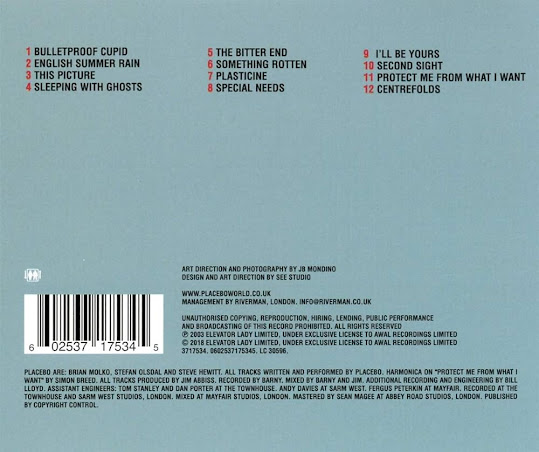02 One for the Mockingbird (4:23)
03 I've Been in Love Before (5:09)
04 Life in a Dangerous Time (4:34)
05 Fear of Falling (4:50)
06 (I Just) Died in Your Arms (4:39)
07 Don't Look Back (4:12)
08 Sahara (4:49)
09 It Shouldn't Take Too Long (4:05)
10 The Broadcast (6:33)


Cutting Crew are an English rock band formed in London in 1985 by lead vocalist Nick Van Eede and guitarist Kevin MacMichael. The group achieved international success with their 1986 debut single, "(I Just) Died in Your Arms", which reached number one in the United States and charted highly worldwide. Their debut album, Broadcast (1986), produced several other singles, including "I've Been in Love Before", which also reached the U.S. Top 10, and earned them a Grammy nomination for Best New Artist in 1987. Despite lineup changes and a hiatus in the 1990s, Van Eede revived the band in the 2000s, releasing new material and touring under the Cutting Crew name. Known for their polished production and melodic rock sound, the band has maintained a dedicated following and continues to be recognized for their contributions to 1980s pop and rock music.
Released in the United Kingdom in 1986, Broadcast was later released more widely, including in the United States, Canada and Japan in March 1987 with different packaging and four remixed tracks ("Any Colour", "One for the Mockingbird", "I've Been in Love Before" and "(I Just) Died in Your Arms"), all of which were released as singles. It was the first album to be released in the US by Virgin Records' new American imprint, Virgin Records America. "(I Just) Died in Your Arms" reached No. 1 on the US Billboard Hot 100 and No. 4 on the UK Singles Chart, and later on, "I've Been in Love Before" and "One for the Mockingbird" became top 10 and top 40 hits respectively across various countries. The band then received a Grammy nomination for Best New Artist of 1987. Despite all this, however, contemporary reception to the album was mixed from critics and muted commercially.
Both the album and the band have been looked upon more positively in hindsight. In a retrospective review, Michael Sutton of AllMusic gave the album four stars. He said the album "never deserved the hacking [it] received from critics", and said that "the slick guitar rock on Broadcast may not have wowed the rock & roll intelligentsia, but it's a guaranteed crowd-pleaser, an underrated collection of simple, heartfelt love songs and up-tempo pop that reside between the stylistic boundaries of new wave and mainstream rock." He concludes the review by saying the album "is not a creative breakthrough", but is "simply an LP absent of any filler."
Released in the United Kingdom in 1986, Broadcast was later released more widely, including in the United States, Canada and Japan in March 1987 with different packaging and four remixed tracks ("Any Colour", "One for the Mockingbird", "I've Been in Love Before" and "(I Just) Died in Your Arms"), all of which were released as singles. It was the first album to be released in the US by Virgin Records' new American imprint, Virgin Records America. "(I Just) Died in Your Arms" reached No. 1 on the US Billboard Hot 100 and No. 4 on the UK Singles Chart, and later on, "I've Been in Love Before" and "One for the Mockingbird" became top 10 and top 40 hits respectively across various countries. The band then received a Grammy nomination for Best New Artist of 1987. Despite all this, however, contemporary reception to the album was mixed from critics and muted commercially.
Both the album and the band have been looked upon more positively in hindsight. In a retrospective review, Michael Sutton of AllMusic gave the album four stars. He said the album "never deserved the hacking [it] received from critics", and said that "the slick guitar rock on Broadcast may not have wowed the rock & roll intelligentsia, but it's a guaranteed crowd-pleaser, an underrated collection of simple, heartfelt love songs and up-tempo pop that reside between the stylistic boundaries of new wave and mainstream rock." He concludes the review by saying the album "is not a creative breakthrough", but is "simply an LP absent of any filler."
















































